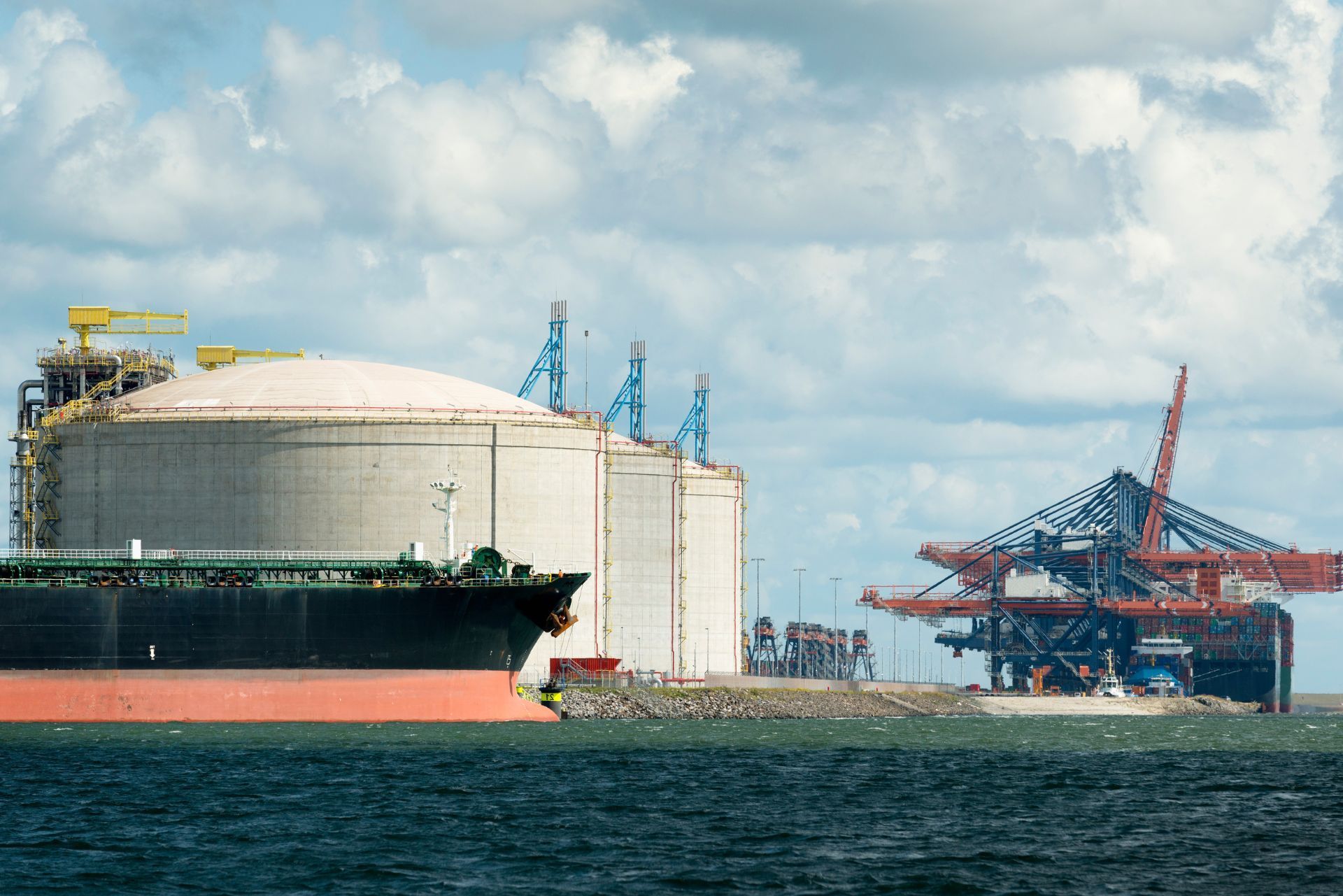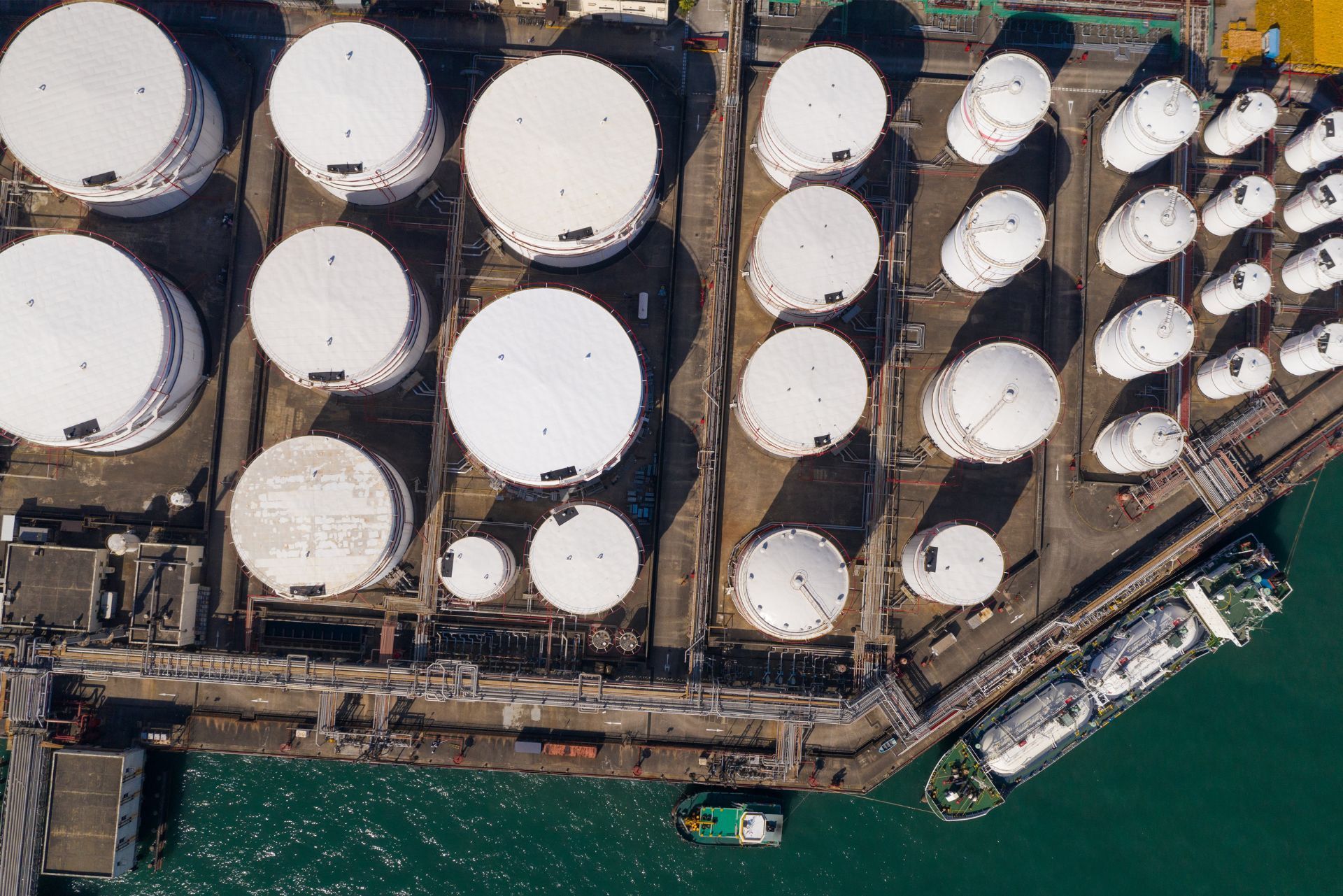Floating Production Storage & Offloading Business Insurance Insurance

or call us: (281) 823-8262
Top 3 Recommended Policies

The Floating Production Storage and Offloading (FPSO) sector is a critical component of the offshore oil and gas industry, enabling efficient extraction, processing, and storage of hydrocarbons in some of the world’s most challenging marine environments. As the global FPSO market continues to expand rapidly, with projections estimating growth from $25.2 billion in 2023 to $46.2 billion by 2033, businesses operating in this space face an evolving landscape of operational risks and regulatory demands. Securing comprehensive business insurance tailored to the unique needs of FPSO operations is more important than ever to safeguard investments and ensure operational continuity.
In this article, we will explore the essentials of FPSO business insurance, examining the key risks operators face, the types of coverage available, and how emerging trends in technology and sustainability influence insurance considerations. Understanding these factors will help FPSO operators, insurers, and stakeholders navigate this complex market with confidence.
Understanding the FPSO Industry Landscape
Floating Production Storage and Offloading units serve as floating vessels that process and store oil and gas extracted from subsea wells, often located in deepwater or remote offshore locations. The FPSO market is witnessing robust growth driven by increasing offshore exploration activities and rising global energy demand. Notably, the shallow water segment accounted for the largest market share of approximately 37.4% in 2022, reflecting intensified exploration and production in these accessible regions.
Technological advancements are reshaping FPSO operations, with digital tools such as data analytics, automation, and artificial intelligence improving operational efficiency and safety. These innovations not only optimize production but also reduce downtime and operational risks, which are critical factors for insurers assessing risk profiles. For instance, predictive maintenance powered by AI can foresee equipment failures before they occur, allowing operators to schedule repairs during planned downtime rather than facing costly unplanned outages. This proactive approach not only enhances safety but also contributes to a more sustainable operational model, aligning with the industry's growing emphasis on environmental responsibility.
However, the industry also faces challenges such as supply chain disruptions and geopolitical tensions, which have driven up the cost of specialized materials like steel by over 40% between 2021 and 2022. This increase has translated into a 15-20% rise in upfront capital expenditures for new FPSOs, intensifying the financial stakes for operators and insurers alike. Furthermore, the fluctuating prices of crude oil and natural gas can impact investment decisions, leading to uncertainty in project financing. As a result, many companies are exploring partnerships and joint ventures to share risks and pool resources, ensuring they remain competitive in a volatile market.
For those interested in a detailed market overview, Allied Market Research’s FPSO market report offers comprehensive insights into growth projections and market dynamics. Additionally, the report delves into regional trends, highlighting how different geographical areas are leveraging FPSOs to meet their energy needs, particularly in regions like West Africa and Brazil, where offshore reserves are abundant. The evolving regulatory landscape, including stricter environmental regulations, is also examined, as it plays a crucial role in shaping the future of FPSO operations and investments.

Key Risks in FPSO Operations and Their Insurance Implications
FPSOs operate in complex and often harsh marine environments, exposing them to a wide range of risks that insurance policies must address. Understanding these risks is fundamental to structuring effective insurance coverage.
Operational and Technical Risks
Mechanical failures, process upsets, and equipment malfunctions can lead to costly production interruptions and safety incidents. The integration of advanced digital technologies helps mitigate some of these risks by enabling predictive maintenance and real-time monitoring. Nonetheless, the high capital investment and technical complexity of FPSOs mean that operational risks remain significant. Moreover, the reliance on sophisticated software systems introduces cybersecurity vulnerabilities, as hackers may target these systems to disrupt operations or steal sensitive data. As a result, insurance policies are increasingly incorporating cyber risk coverage to address potential financial losses stemming from such attacks.
Environmental and Regulatory Risks
Environmental protection is a top priority, with FPSOs increasingly incorporating advanced containment systems, emission control technologies, and waste management solutions to comply with stringent regulations. The adoption of hybrid power solutions and carbon capture and storage (CCS) systems reflects the industry's commitment to reducing carbon emissions and environmental impact. Furthermore, the evolving landscape of environmental legislation means that FPSOs must remain agile and responsive to new regulations, which can vary significantly by region. Insurers must take into account the potential for increased compliance costs and the risk of operational shutdowns due to non-compliance when underwriting policies.
Failing to meet environmental standards can result in severe penalties, reputational damage, and costly remediation efforts, all of which insurers must consider when underwriting policies. Additionally, the growing public scrutiny surrounding environmental issues means that companies operating FPSOs face heightened expectations from stakeholders, including investors and local communities, to demonstrate sustainable practices and transparency in their operations.
Geopolitical and Supply Chain Risks
Global supply chain constraints and geopolitical instability can disrupt the procurement of critical components and materials, leading to project delays and increased costs. The significant rise in steel prices exemplifies how external economic factors can impact FPSO project economics and risk profiles. Furthermore, trade tensions and sanctions can complicate the sourcing of essential technologies and equipment, forcing operators to seek alternative suppliers or solutions, which may not always meet the same quality or safety standards. Insurers must evaluate these geopolitical risks carefully, as they can lead to unforeseen liabilities and increased operational costs.
Safety and Security Risks
FPSOs must contend with risks related to crew safety, fire, explosions, and potential security threats such as piracy or sabotage. Recent FPSO designs emphasize enhanced safety features, including double hull configurations, which are expected to grow at a CAGR of 12.6%, driven by demand for improved safety and environmental protection. Additionally, comprehensive training programs and emergency response drills are critical components of safety management, ensuring that crew members are well-prepared to handle emergencies effectively. The implementation of advanced surveillance and monitoring systems also plays a vital role in safeguarding FPSOs against security threats, allowing for rapid response to any suspicious activities.
Types of Insurance Coverage for FPSO Businesses
Given the multifaceted risks associated with FPSO operations, a comprehensive insurance program typically includes several specialized coverages tailored to offshore production environments.
Hull and Machinery Insurance
This coverage protects against physical damage to the FPSO vessel itself, including its machinery and onboard equipment. Given the high capital value of FPSOs and the complex engineering involved, hull and machinery insurance is a cornerstone of any FPSO insurance portfolio. The intricacies of FPSO design, which often incorporate advanced technology for oil and gas extraction, mean that even minor damages can lead to extensive repair costs. Regular maintenance and inspections are crucial, but unforeseen events such as severe weather conditions or collisions can still pose significant threats to the vessel's integrity, making this insurance indispensable.
Business Interruption Insurance
Operational disruptions due to equipment failure, environmental incidents, or geopolitical events can lead to significant revenue losses. Business interruption insurance helps cover lost income and additional expenses incurred during downtime, providing financial stability while repairs or mitigation measures are underway. This type of coverage becomes particularly vital in the volatile offshore environment, where delays can extend for months due to the complexities of logistics and regulatory approvals. Moreover, the financial implications of a prolonged interruption can ripple through the supply chain, affecting not just the FPSO operator but also contractors and suppliers, highlighting the interconnected nature of the industry.
Liability Insurance
Liability policies cover third-party claims arising from pollution, environmental damage, bodily injury, or property damage caused by FPSO operations. With increasing regulatory scrutiny and environmental standards, liability insurance is critical to managing potential legal and financial exposures. The stakes are particularly high in regions where environmental laws are stringent, and penalties for non-compliance can be severe. Furthermore, the potential for class-action lawsuits from affected communities can escalate costs and damage reputations, making robust liability coverage a strategic necessity for FPSO operators.
Environmental and Pollution Insurance
Specialized policies address the risks of pollution and environmental harm, including coverage for cleanup costs, fines, and third-party claims. The growing focus on sustainability and carbon reduction technologies in FPSOs underscores the importance of this coverage. As public awareness of environmental issues increases, FPSO operators face mounting pressure to demonstrate their commitment to responsible operations. This insurance not only protects against financial losses but also serves as a tool for enhancing corporate reputation and stakeholder trust, which are increasingly important in today’s environmentally-conscious market.
Workers’ Compensation and Crew Insurance
Given the offshore nature of FPSO operations, protecting the health and safety of crew members is paramount. Insurance covering medical expenses, injury compensation, and evacuation costs is essential for compliance and risk management. The unique challenges of working in offshore environments, including exposure to harsh weather conditions and the risk of accidents during complex operations, necessitate comprehensive coverage. Additionally, training and safety protocols must be rigorously enforced to minimize risks, and having robust
workers' compensation insurance can provide peace of mind to crew members, ensuring that they feel secure while performing their essential roles in maintaining operations.
Impact of Industry Trends on FPSO Insurance
The FPSO industry is evolving rapidly, and these changes have direct implications for insurance providers and policyholders alike.
Technological Innovation and Risk Mitigation
The integration of digital technologies such as AI and automation not only enhances operational efficiency but also reduces risk exposure. Insurers are increasingly evaluating the use of these technologies as part of their underwriting process, potentially leading to more favorable terms for operators who demonstrate robust risk management practices.
For more on how digital transformation is shaping the FPSO market, see this Global Growth Insights report.
Moreover, the advent of predictive analytics allows operators to foresee potential equipment failures and operational inefficiencies before they escalate into costly incidents. By leveraging data analytics, FPSO operators can optimize maintenance schedules and enhance safety protocols, thereby further minimizing their risk profiles. Insurers are likely to reward these proactive measures with lower premiums, fostering a culture of continuous improvement within the industry.
Environmental Sustainability and Regulatory Compliance
With oil and gas companies investing in FPSOs equipped with carbon capture and hybrid power solutions, insurers must adapt to new risk profiles that incorporate environmental performance. Enhanced safety and environmental standards, including better containment and emission control systems, are becoming prerequisites for insurance eligibility.
These developments reflect a broader industry commitment to sustainability, which insurers recognize as a factor that can reduce long-term liabilities and improve risk outcomes. As environmental regulations tighten globally, FPSO operators are also facing increased scrutiny regarding their compliance measures. Insurers are now more inclined to engage with operators who can demonstrate not only adherence to current regulations but also a forward-thinking approach to future compliance challenges, thus ensuring a more sustainable operational framework.
Market Growth and Capital Cost Pressures
The FPSO market’s projected compound annual growth rate (CAGR) of 6.3% through 2033 signals expanding opportunities but also heightened competition and capital intensity. Rising costs due to supply chain constraints and geopolitical risks necessitate insurance programs that are both comprehensive and cost-effective to protect significant capital investments.
As the market grows, so does the complexity of the projects being undertaken. New FPSO designs are increasingly sophisticated, often incorporating advanced technologies that require specialized knowledge for risk assessment. Insurers must stay ahead of these trends by developing tailored insurance solutions that address unique project specifications and potential liabilities. This need for bespoke insurance products is driving innovation within the insurance sector, prompting providers to collaborate closely with FPSO operators to ensure that coverage is not only adequate but also aligned with the evolving landscape of the industry.

Choosing the Right Insurance Partner for FPSO Operations
Securing the appropriate insurance coverage for FPSO operations requires partnering with insurers who understand the unique challenges and complexities of offshore production.
Key considerations when selecting an insurance provider include:
- Industry Expertise: Insurers with a proven track record in offshore energy and FPSO-specific risks can offer tailored policies and risk management advice.
- Global Reach: Given the international nature of FPSO projects, insurers with global capabilities can provide consistent coverage across multiple jurisdictions.
- Claims Handling: Efficient and transparent claims processes are critical in minimizing downtime and financial losses in the event of an incident.
- Risk Management Support: Providers who offer risk assessment, training, and technological integration support can help operators reduce premiums and improve safety.
As the FPSO market continues to grow and evolve, staying informed about industry trends and regulatory changes is essential for both operators and insurers. The dynamic nature of this sector demands proactive risk management and insurance strategies that can adapt to emerging challenges and opportunities.
Moreover, the integration of advanced technologies, such as predictive analytics and real-time monitoring systems, is becoming increasingly vital in the FPSO industry. Insurers who leverage these technologies can provide more accurate risk assessments and customized coverage options. This not only enhances the safety and efficiency of operations but also fosters a culture of innovation within the industry. Operators should seek insurance partners who are not only reactive but also proactive in employing technology to anticipate potential risks and mitigate them before they escalate into costly incidents.
Additionally, the environmental impact of FPSO operations cannot be overlooked. Insurers that prioritize sustainability and environmental responsibility can offer specialized coverage that addresses the unique environmental liabilities associated with offshore production. This includes coverage for pollution risks and compliance with stringent environmental regulations, which are becoming increasingly important as global focus shifts towards sustainability. By aligning with insurers who share a commitment to environmental stewardship, operators can enhance their reputation and ensure they are prepared for the evolving regulatory landscape.
Conclusion
The Floating Production Storage and Offloading business represents a high-value, high-risk segment of the offshore oil and gas industry. With the global market expected to nearly double in value by 2033, operators must prioritize comprehensive insurance coverage that addresses the full spectrum of operational, environmental, and geopolitical risks.
Advancements in technology and sustainability are reshaping risk profiles and insurance requirements, while rising costs and stringent regulations add layers of complexity. By understanding these factors and partnering with knowledgeable insurers, FPSO businesses can protect their assets, ensure regulatory compliance, and maintain operational resilience in a competitive market.
For further insights into the FPSO market’s growth and future prospects, the Ein Presswire analysis provides a detailed exploration of current trends and challenges.
Contact Us
Phone
Location
9595 Six Pines Dr, Suite 8210, The Woodlands, TX 77380
